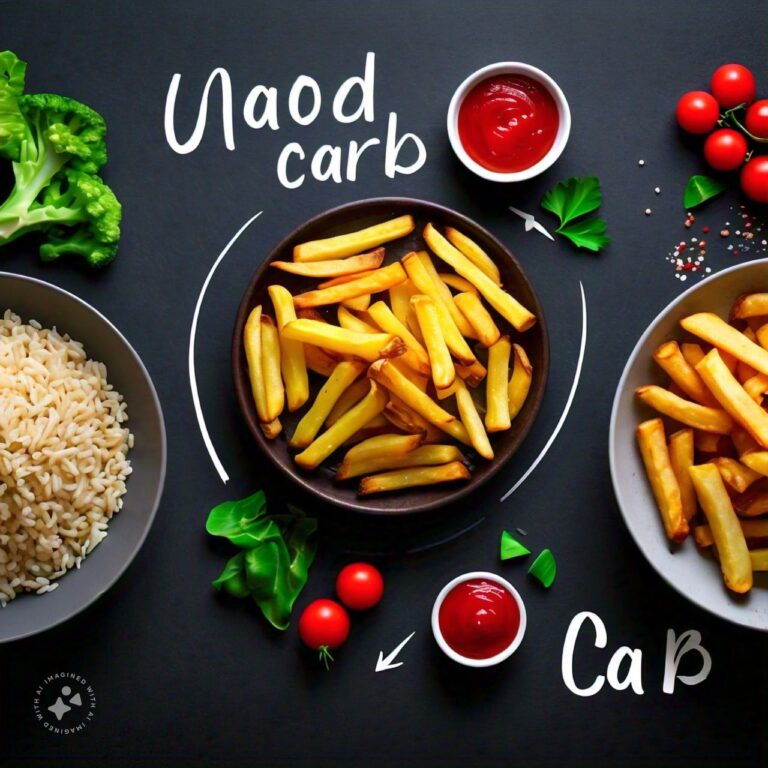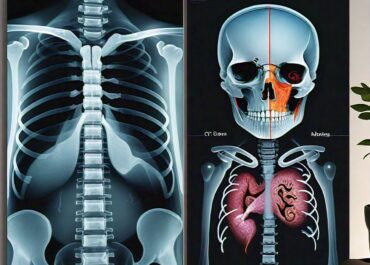
Differences Between Good Carbs and Bad Carbs
Carbohydrates are one of the three macronutrients essential for the body, providing energy that fuels everyday activities. However, not all carbohydrates are created equal. The terms “good carbs” and “bad carbs” are often used to describe the quality and health impact of different types of carbohydrates. Good carbs refer to complex carbohydrates found in whole, unprocessed foods, while bad carbs are typically simple carbohydrates found in highly processed or refined foods. Understanding the difference between these types of carbohydrates can help individuals make healthier dietary choices and support long-term health and well-being.
Good Carbs Overview
Good carbs are often referred to as complex carbohydrates. These carbohydrates are made up of long chains of sugar molecules that the body breaks down slowly, providing a steady and sustained source of energy. Foods that are rich in good carbs are typically whole, unprocessed, and packed with essential nutrients such as fiber, vitamins, and minerals. They also have a lower glycemic index (GI), meaning they do not cause rapid spikes in blood sugar levels, which helps maintain steady energy and reduces the risk of developing insulin resistance or type 2 diabetes.
Examples of Good Carbs:
Good carbs are primarily found in whole grains, vegetables, legumes, and fruits. Some examples include:
- Whole Grains: Brown rice, quinoa, barley, oats, whole wheat bread, and whole wheat pasta.
- Vegetables: Broccoli, spinach, kale, carrots, sweet potatoes, and squash.
- Fruits: Apples, berries, oranges, pears, and bananas.
- Legumes: Beans, lentils, chickpeas, and peas.
- Nuts and Seeds: Almonds, walnuts, chia seeds, and flaxseeds.
Nutritional Benefits of Good Carbs:
- High in Fiber:
One of the defining characteristics of good carbs is their high fiber content. Fiber is a non-digestible carbohydrate that plays an essential role in digestive health. It helps regulate bowel movements, prevents constipation, and can lower the risk of developing certain diseases, such as heart disease and colorectal cancer. Additionally, fiber helps promote a feeling of fullness, which can aid in weight management. - Packed with Nutrients:
Good carbs are usually nutrient-dense, meaning they provide essential vitamins, minerals, and antioxidants along with energy. For example, whole grains contain B vitamins, which are crucial for energy metabolism, while vegetables and fruits are rich in vitamins C and A, potassium, and other micronutrients that support overall health. - Low Glycemic Index:
Foods with good carbs tend to have a lower glycemic index, which means they are digested and absorbed more slowly. This prevents rapid increases in blood sugar levels and provides a more stable source of energy. Low-GI foods are particularly beneficial for individuals with diabetes or those looking to manage their blood sugar levels effectively. - Sustained Energy:
Due to the slow digestion of good carbs, they provide a steady supply of energy over an extended period, making them an ideal source of fuel for both physical and mental activities. This is in contrast to the quick energy boost and subsequent crash often experienced with bad carbs. - Weight Management:
Good carbs, especially those high in fiber, help with weight management. They promote satiety and reduce hunger, making it easier to control portion sizes and reduce overall calorie intake. Studies have shown that diets rich in good carbs, particularly whole grains and vegetables, are associated with healthier body weight and reduced risk of obesity.
Health Benefits of Good Carbs:
- Improved Heart Health:
Good carbs, particularly whole grains and fiber-rich foods, have been linked to better heart health. Fiber can help lower cholesterol levels and reduce the risk of heart disease. - Lower Risk of Type 2 Diabetes:
The slow release of glucose from good carbs helps stabilize blood sugar levels and improves insulin sensitivity, reducing the risk of developing type 2 diabetes. - Better Digestive Health:
Fiber from good carbs promotes regular bowel movements and helps maintain a healthy gut microbiome, which is essential for overall health. - Enhanced Mental Performance:
Carbohydrates are the brain's primary energy source, and consuming good carbs ensures a steady supply of glucose, supporting cognitive function, memory, and mood stability.
Bad Carbs Overview
Bad carbs, often referred to as simple carbohydrates or refined carbohydrates, are carbohydrates that have been stripped of their fiber, vitamins, and minerals during processing. These carbohydrates are digested quickly, leading to rapid spikes in blood sugar and insulin levels. While they provide quick energy, this energy is short-lived and is often followed by a crash, leading to feelings of fatigue, irritability, and hunger. Over time, excessive consumption of bad carbs can contribute to weight gain, insulin resistance, and chronic health issues like diabetes and heart disease.
Examples of Bad Carbs:
Bad carbs are typically found in highly processed, refined foods with little to no nutritional value. Some examples include:
- Sugary Beverages: Soft drinks, energy drinks, sweetened teas, and fruit juices with added sugars.
- Refined Grains: White bread, white pasta, white rice, and pastries.
- Sweets and Desserts: Cookies, cakes, candy, ice cream, and other sugary treats.
- Processed Snacks: Potato chips, crackers, and packaged snack cakes.
- Fast Food: Many fast food items, including burgers with refined buns, fries, and sugary drinks.
Nutritional Drawbacks of Bad Carbs:
- Low in Nutrients:
Bad carbs are often referred to as "empty calories" because they provide little to no nutritional value beyond their calorie content. They are typically devoid of fiber, vitamins, and minerals, which are essential for overall health. - High Glycemic Index:
Foods high in bad carbs usually have a high glycemic index, meaning they are digested and absorbed quickly, leading to rapid spikes in blood sugar levels. This can cause energy crashes and make it difficult to maintain stable blood sugar levels over time. - Promote Weight Gain:
Bad carbs are often high in calories and low in fiber, which means they do not promote feelings of fullness or satiety. This can lead to overeating and contribute to weight gain. Additionally, the rapid spikes and crashes in blood sugar can trigger hunger shortly after eating, further increasing calorie intake. - Linked to Chronic Diseases:
Diets high in bad carbs, especially from sugary foods and refined grains, have been linked to a higher risk of developing chronic diseases such as type 2 diabetes, heart disease, and obesity. The overconsumption of sugar and refined carbohydrates can lead to insulin resistance, inflammation, and other metabolic problems.
Health Risks of Bad Carbs:
- Increased Risk of Type 2 Diabetes:
Regular consumption of bad carbs, particularly sugary foods and drinks, can lead to insulin resistance, increasing the risk of type 2 diabetes. - Higher Risk of Heart Disease:
Diets high in refined carbs and sugar can raise blood triglyceride levels and promote inflammation, both of which increase the risk of heart disease. - Obesity and Weight Gain:
Bad carbs are often calorie-dense but nutrient-poor, leading to weight gain and obesity, especially when consumed in large quantities over time. - Mood Swings and Energy Crashes:
The rapid spikes and crashes in blood sugar caused by bad carbs can lead to irritability, mood swings, and energy fluctuations throughout the day.
Differences Between Good Carbs and Bad Carbs
Nutritional Value:
- Good Carbs: Rich in fiber, vitamins, and minerals; provide long-lasting energy and promote overall health.
- Bad Carbs: Low in fiber and nutrients; provide quick energy followed by a crash, contributing to overeating and health issues.
Glycemic Index:
- Good Carbs: Low glycemic index, leading to slow digestion and stable blood sugar levels.
- Bad Carbs: High glycemic index, leading to rapid spikes in blood sugar and insulin levels.
Impact on Health:
- Good Carbs: Promote heart health, improve digestion, help with weight management, and reduce the risk of chronic diseases.
- Bad Carbs: Increase the risk of obesity, type 2 diabetes, heart disease, and other health issues due to their impact on blood sugar and insulin.
Satiety and Energy Levels:
- Good Carbs: Provide long-lasting energy and promote feelings of fullness, helping to control hunger and prevent overeating.
- Bad Carbs: Provide short-term energy but lead to quick hunger and energy crashes, contributing to overeating and weight gain.
Conclusion
The distinction between good carbs and bad carbs is important for making informed dietary choices. Good carbs, found in whole grains, fruits, vegetables, and legumes, provide essential nutrients, fiber, and long-lasting energy. In contrast, bad carbs, often present in sugary drinks, processed snacks, and refined grains, offer little nutritional value and can lead to health issues like obesity, type 2 diabetes, and heart disease when consumed in excess. By prioritizing good carbs in your diet, you can support long-term health, manage weight, and maintain stable energy levels throughout the day.
FAQs
Related Topics
- All
- Animals
- Diseases
- Health
- Money
- Politics
© 2024 OnYelp.com. All rights reserved. Terms and Conditions | Contact Us | About us





